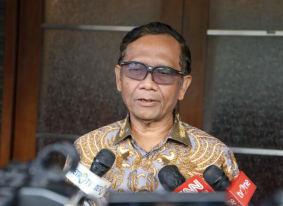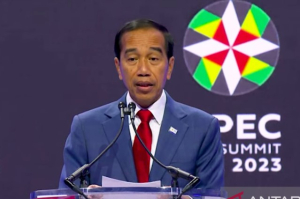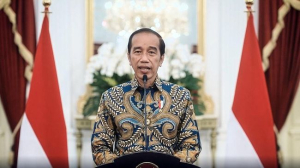Minister Mahfud Md reveals 84% of corruptors in Indonesia are university graduates
In a recent address at the State University of Padang, Coordinating Minister for Political, Legal, and Security Affairs, Prof. Dr. Mahfud Md, disclosed that 84% of corrupt individuals in Indonesia hold university degrees.
"Based on Corruption Eradication Commission data, 84% of corruptors in Indonesia are university graduates," Mahfud stated.
Elaborating on the same dataset, Mahfud mentioned that the current number of corruptors in the country is around 1,300, who have been either apprehended or tried in court. This implies that approximately 900 corrupt individuals possess university degrees or are graduates.
While acknowledging the relatively high number of corruptors among university graduates, Mahfud asserted that universities are not failing, considering the significantly larger number of graduates—around 17.6 million individuals.
He emphasized that if the number of graduates is 17.6 million and only 900 are involved in corruption, it represents only about 0.05%. In his view, this indicates that universities are still doing well.
Mahfud remarked on the cognitive intelligence and moral character imbalance among these corruptors, stating that they may be intelligent in terms of cognitive abilities but lack moral integrity. He highlighted the imbalance between cognitive intelligence and noble character.
On a positive note, Mahfud expressed pride in every graduate, recognizing the advancements in the Indonesian education sector. He reflected on the situation in 1970 when it was challenging to find individuals with bachelor's degrees.
Since then, there has been a significant increase in the number of bachelor's, master's, and doctoral degree holders, even producing professors. This signifies the progress of the Indonesian education system, despite its existing shortcomings.
In conclusion, Mahfud urged every university graduate in the country to be grateful to the nation. He emphasized the importance of contributing to the progress of the nation and participating in nation-building activities.
It's worth noting that recent corruption cases, such as the arrest of Bandung Mayor Yana Mulyana by the Corruption Eradication Commission (KPK) over alleged bribery, continue to raise concerns about corruption in Indonesia.
Tag
Already have an account? Sign In
-
Start reading
Freemium
-
Monthly Subscription
30% OFF$26.03
$37.19/MonthCancel anytime
This offer is open to all new subscribers!
Subscribe now -
Yearly Subscription
33% OFF$228.13
$340.5/YearCancel anytime
This offer is open to all new subscribers!
Subscribe now





